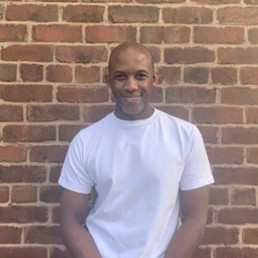
Written by Darren Crosdale
English and Media Studies-trained teacher, currently working in a large Liverpool comprehensive
I could list the oh-so-obvious issues faced by teachers in working-class schools but if you’re reading this, it’s likely you have already read similar compilations on a blog or a Twitter thread. So, I decided to do things a little differently.
In over twenty years of teaching, I have had students disclose a wide variety of issues. That they are trans. That their parents are separating. That they had unprotected sex with a neighbour’s lad while their mothers were downstairs chatting. That they were smuggled into the country in the back of a lorry and almost froze to death. The list goes on.
I have never, however, had a student tell me they are poor. That they are hungry. Or that the weight of poverty on their young shoulders was unbearable. Never. And I know from colleagues up and down the country, this situation is replicated.
Occasionally, students ask me to pay for their lunch (and I know I am not the only teacher, sadly.) Every now and again a student will say ‘Those apples look nice sir,’ pointing at the apples on my shelf. (I am known for having a Pink Lady at break time. I will always hand one over.) Never, however, has a student divulged that they are ‘poor’ or ‘struggling’ or ‘disadvantaged’ as our teacher parlance states. There is an immense shame attached to poverty in our society. A shame that is rarely spoken about or directly confronted by staff and students alike.
One of my favourite lessons asks students to think about how much the government thinks their education is worth: not some flimsy philosophical description but raw numbers, please. We start off by discussing the world-famous private school, Eton College. Its fees are approximately £46,000 per year. When students begin to brainstorm how much your average secondary comprehensive receives from the government for each child, you can see lights twinkling in eyes. I sit back and listen carefully.
“I reckon the school gets £50 for us,” a girl said recently.
“Per year?” I reply.
“That can’t be right,” retorts a lad. He’s good at Maths.
“Actually,” another student asks, “Do the teachers’ wages and the leccie bill and glue sticks come out of that money too?” She’s better at Maths.
“Yup,” I reply.
“So, it has to be more than £50!” another student snorts.
And so, the discussion continues. This is one of those lessons all teachers enjoy: the students are teaching each other; they are thinking, critically, about our society; it’s one of those lessons where they question the way in which inequality works. Invariably, the students’ suggestions about how much their education is worth moves up from £50 but they can never settle on a figure. Whatever total they hover around, however, it is far, far away from £46,000.
Because these regular comprehensive students simply feel they are worth less than those who attend Eton.
Because they know Eton and their comp are both schools but that one is so very different from the other.
Twenty of the fifty-seven prime ministers the UK has had, went to Eton, including Boris Johnson. Our illustrious former prime minister is in the news as I write this. He earned £1m in just six weeks for after-dinner speeches. It also turns out he is living, rent free, in a phenomenal London town house as well. (https://www.gbnews.uk/news/boris-johnson-living-for-free-in-20m-home-in-britains-poshest-street-despite-earning-1m-in-six-weeks/422207) Because of course he is.
Parents will tell you that one of the fascinating aspects of raising young people is around their acquisition of language. My young people do not yet have the power to say “the myth of meritocracy makes our lives more difficult”. (https://news.harvard.edu/gazette/story/2021/01/the-myth-of-meritocracy-according-to-michael-sandel/) But they can damned well draw a link between Boris Johnson attending Eton, becoming Mayor of London, failing upwards to prime minister, getting caught bending the truth, time and time again, stepping down, only to earn more in six weeks than they ever will in their lifetimes.
I haven’t even mentioned the pandemic yet. Ask any teacher and they will tell you there is a clear demarcation between Before and After two years of lockdowns. Things may have been tough Before but After is a whole other thing. Lockdowns were damned difficult if you were in a comfortable house, worked from home, took regular exercise and did not lose anyone to the awful disease. For those who were already struggling, however, lockdowns were perhaps a last straw. All inequalities were magnified – health, finances, education. A friend who teaches in London told me he insisted during a lockdown lesson, that everyone in his A-Level Biology class turned their cameras on. He was desperate to boost morale and add that human touch so very missed during those dry, dry lessons. A student reluctantly, finally turned on her camera, only to reveal a tiny bedroom with six other siblings wearing headphones, trying to focus on their own online lessons. “That’s OK everyone,” he said, heartbroken after a few seconds of realisation, “You can turn them off if you want.” She immediately clicked that small camera icon off.
The worst of it is that, although our new normal is acknowledged – poor mental health, widespread substance abuse, clear mobile phone addiction – these issues have simply been tacked onto the other issues the most vulnerable in our society have been fighting with for decades.
So, no, I didn’t discuss list the typical list of problems working class school face – recruitment and retention, teachers’ pay, non-sticky glue sticks and a Michael Gove-created exam system that is clearly linked to British children ranking as some of the most unhappy in the Western world … but all of that is in attendance too.

